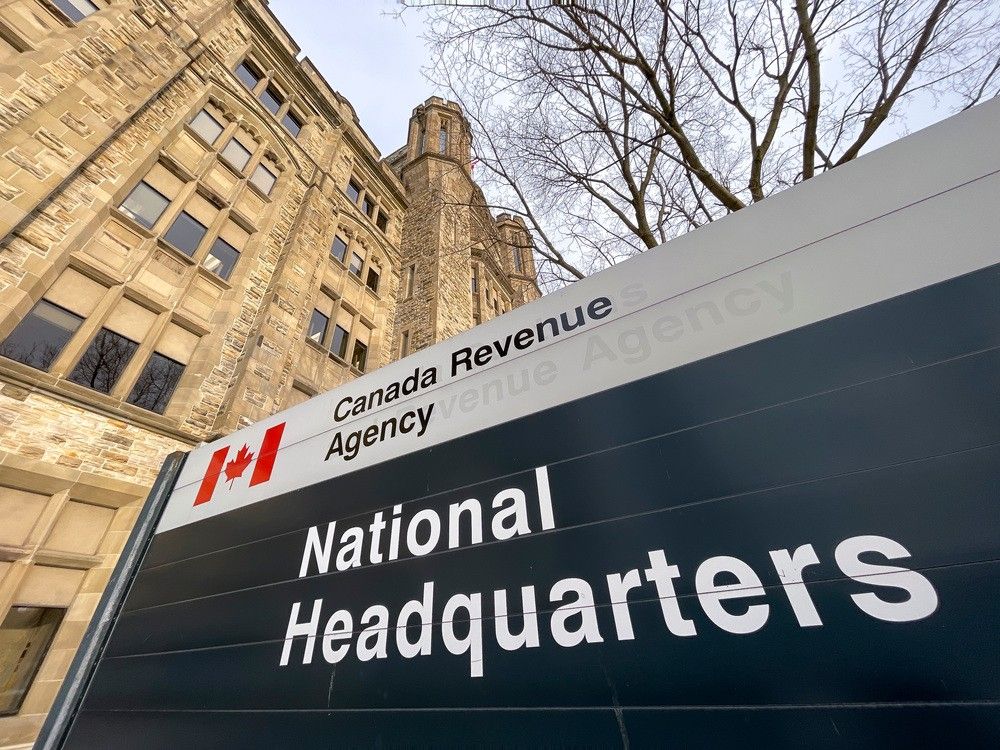“Negotiating the Future of Remote Work: Federal Tax Inspectors and the Canada Revenue Agency Union”
Breadcrumb Trail Links
PIPSC members have been in contract negotiations since October 2022, but during a mid-January negotiation session, CRA officials said they would no longer discuss telecommuting
File: Canada Revenue Agency National Headquarters, Connaught Building, 555 Mackenzie Avenue, Ottawa. March 8, 2021. Photo by Errol McGihon /Postmedia
content of the article
The union, which represents federal tax auditors and other professionals, has filed a negotiation lawsuit against Canada’s Internal Revenue Service over a “one-size-fits-all” approach to telecommuting.
advertising 2
This ad has not yet loaded, but your article continues below.
SIGN UP TO UNLOCK MORE ARTICLES
Create an account or log in to continue your reading experience.
- Access items from across Canada with one account
- Share your thoughts and join the discussion in the comments
- Enjoy additional articles per month
- Receive email updates from your favorite authors
content of the article
The Professional Institute of the Public Service of Canada (PIPSC) filed the complaint Tuesday on behalf of 14,000 members of the Audit, Financial and Scientific Group who work at the tax agency.
By clicking the subscribe button, you agree to receive the above newsletter from Postmedia Network Inc. You can unsubscribe at any time by clicking on the unsubscribe link at the bottom of our emails or any newsletter. Postmedia Network Inc | 365 Bloor Street East, Toronto, Ontario, M4W 3L4 | 416-383-2300
Thanks for registering!
content of the article
PIPSC President Jennifer Carr said the CRA’s requirement that staff return to the office at least two days a week was “a hugely unpopular edict.” A recent survey of union members found up to 85 percent would like to continue working from home, she said.
“You can’t just brush a core issue off the table — which has been identified as a top priority for members — and call it anything but a malicious maneuver,” Carr said.
PIPSC members have been in contract negotiations since October 2022, but during a mid-January negotiation session, CRA officials said they would no longer discuss telecommuting.
advertising 3
This ad has not yet loaded, but your article continues below.
content of the article
The CRA’s position aligns with that of the Treasury Board of Canada Secretariat, which announced in December that government employees must return to the office two or three days a week by the end of March.
Treasury Department President Mona Fortier said deciding where federal employees work is “the right of management,” not something to be negotiated at the negotiating table.
Carr said she doesn’t believe it’s solely up to management to decide on a suitable place to work, given that CRA employees have demonstrated their ability to work productively remotely over the three years of the pandemic.
She noted that the agency had agreed to discuss telecommuting at the negotiating table before the Treasury Department announced its mandate for a return to office. As an independent federal agency, Carr argued, the CRA need not follow in lockstep with the government.
advertising 4
This ad has not yet loaded, but your article continues below.
content of the article
“We knew from the start that rolling out a directive like this in the middle of negotiations does not bode well for good faith negotiations and will create more problems than it solves,” she said.
The CRA did not respond to a request for comment as of Tuesday’s publication on allegations of the union’s malicious bargaining.
Carr warned that the CRA risks “unnecessary confrontation” if it continues to reject the idea that employees should have a say in their jobs.
“The pandemic has forced governments to modernize labor practices and these practices need to be embedded in employment contracts,” Carr said in an interview.
Giving employees the right to telework offers them a better work-life balance, ensures people with disabilities have equal access to jobs and makes it easier to hire people from outside the National Capital Region, she said.
advertising 5
This ad has not yet loaded, but your article continues below.
content of the article
“The government is talking about hybrid design, but I think they really missed the design part,” Carr said. “People who work the service desk have to be there in person, the Coast Guard definitely has to be on the boat, but when we’re talking about someone doing tax auditing or doing political work, they’re paying our members for the work they’re doing, they’re not for where they produce this work.”
PIPSC, the country’s second largest public sector union, represents more than 70,000 members across Canada.
CRA’s other major union, the Union of Taxation Employees, is holding a strike vote among its 35,000 members. The CRA has filed a labor committee complaint against the union alleging they bargained in bad faith. The Union of Taxation Employees is targeting wage increases of nearly 30 percent over three years.
-
Haggling through a bushel: Waves of public sector workers in negotiations with the government
-
CRA workers are seeking a nearly 30 percent wage increase over three years
Share this article on your social network
Display 1
This ad has not yet loaded, but your article continues below.
Comments
Postmedia strives to maintain a lively but civilized discussion forum and encourages all readers to share their opinions on our articles. Comments may take up to an hour to be moderated before they appear on the site. We ask that you keep your comments relevant and respectful. We’ve turned on email notifications – you’ll now receive an email when you get a reply to your comment, there’s an update on a comment thread you follow, or when a user you follow comments follows. For more information and details on how to customize your email settings, see our Community Guidelines.
Source: ottawacitizen.com
Don’t miss interesting posts on Famousbio










